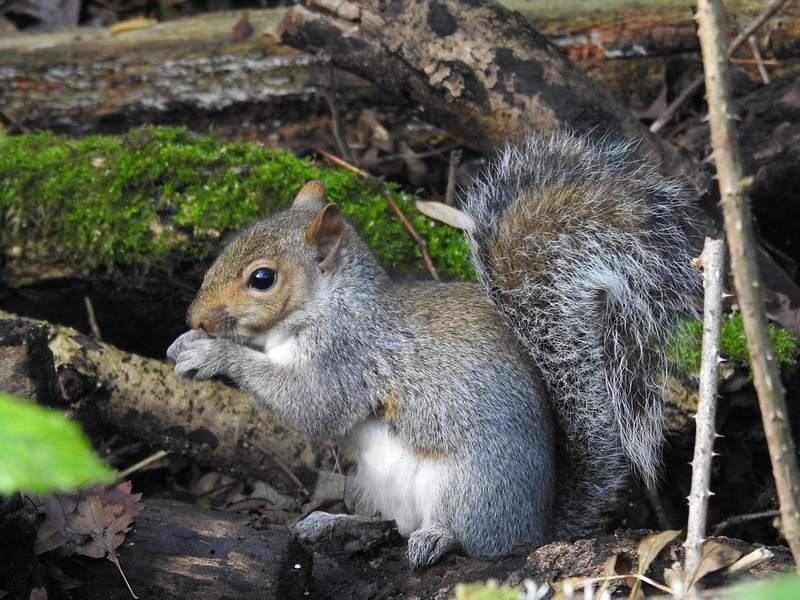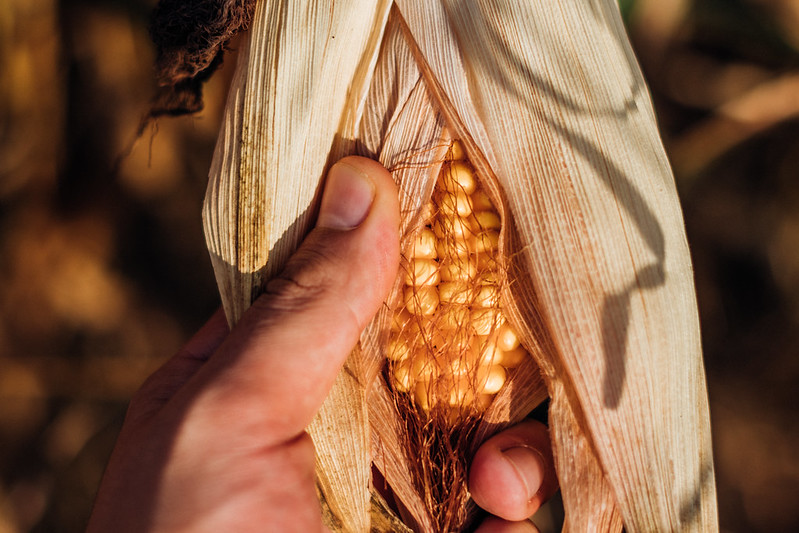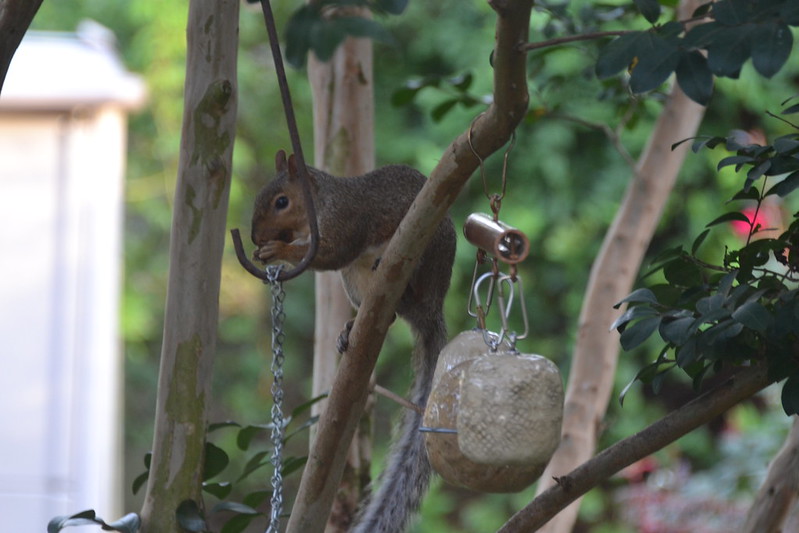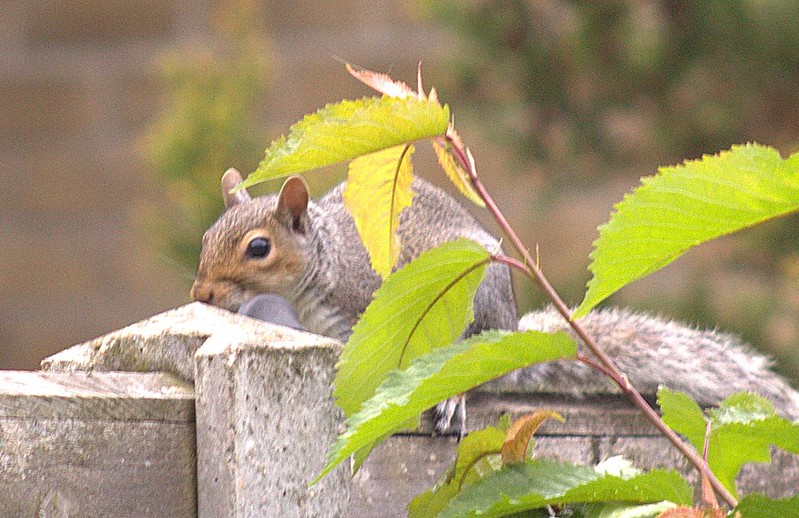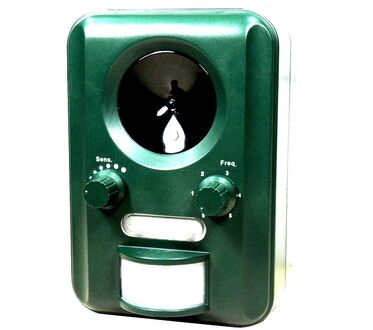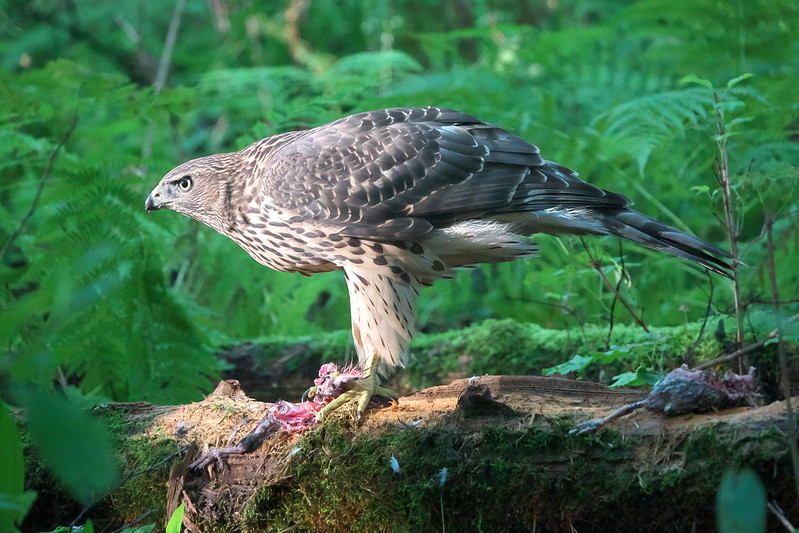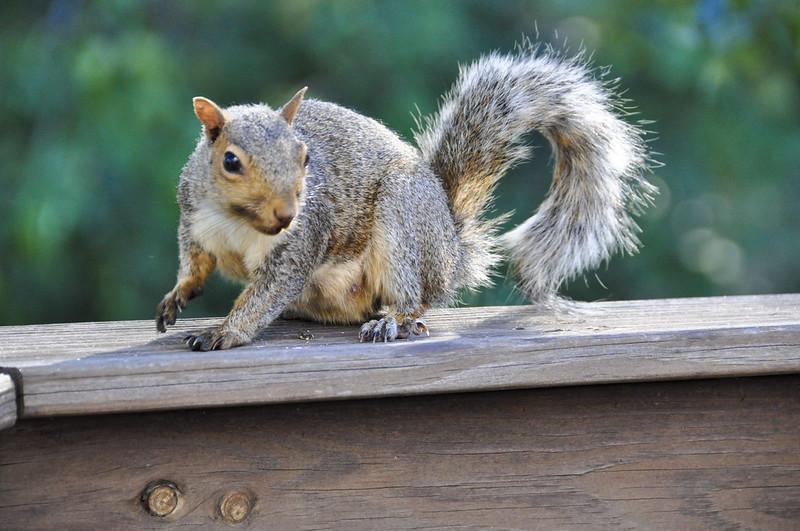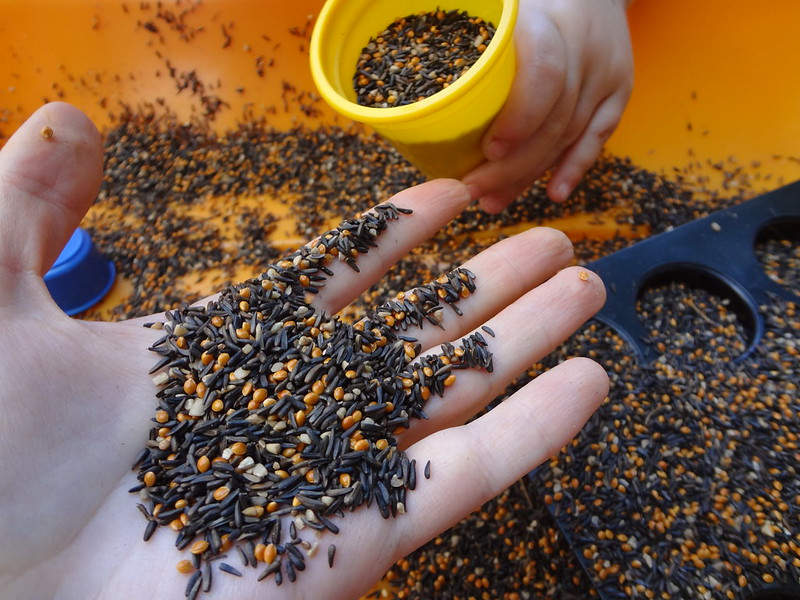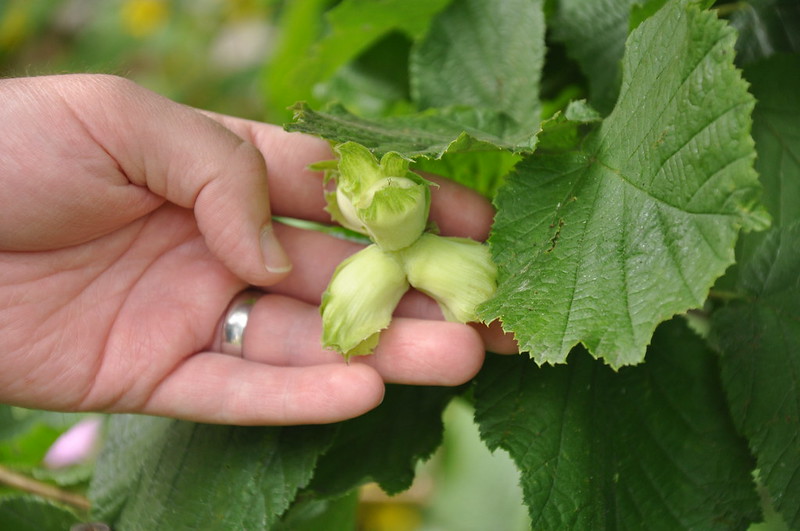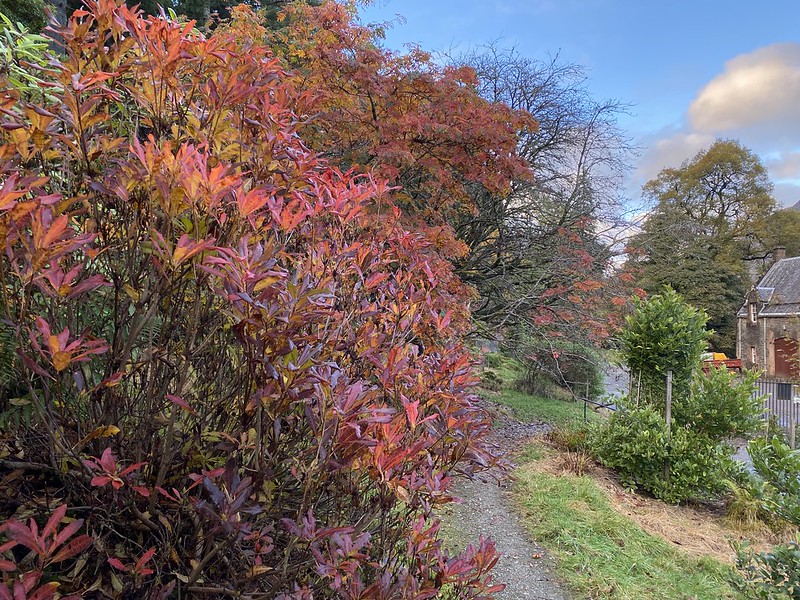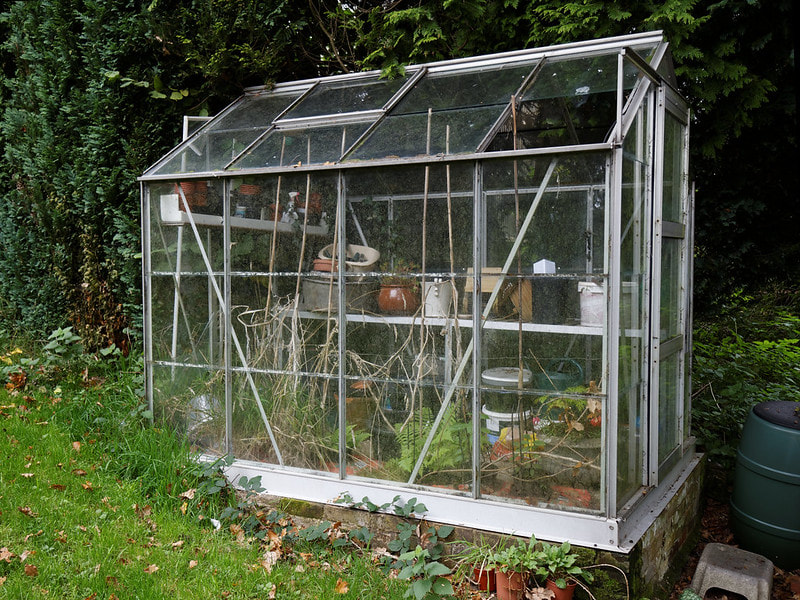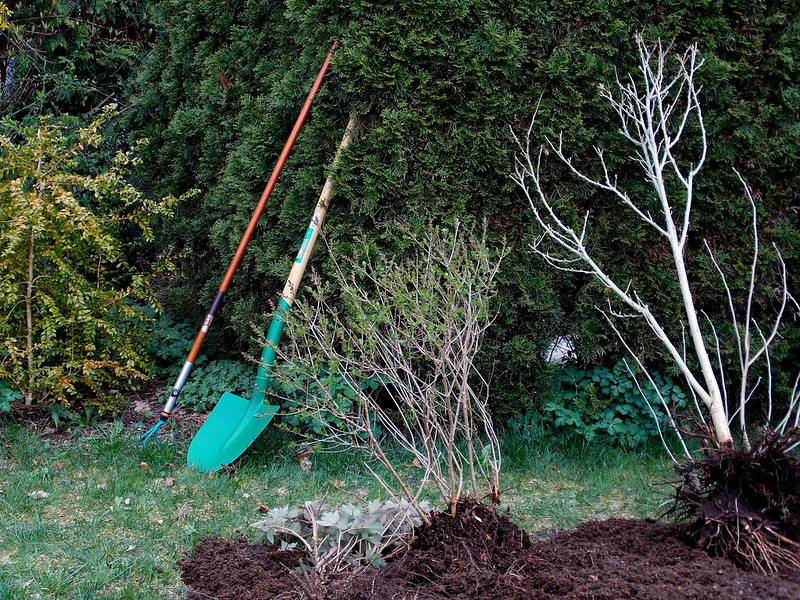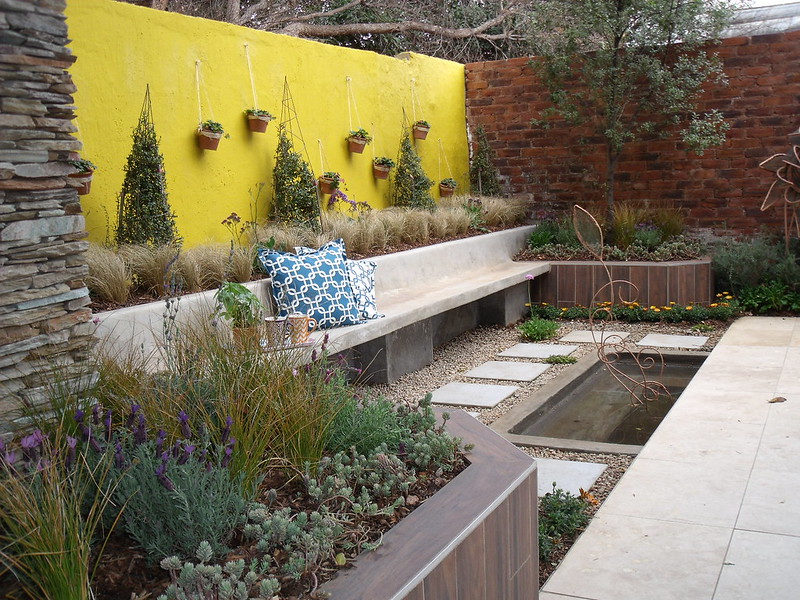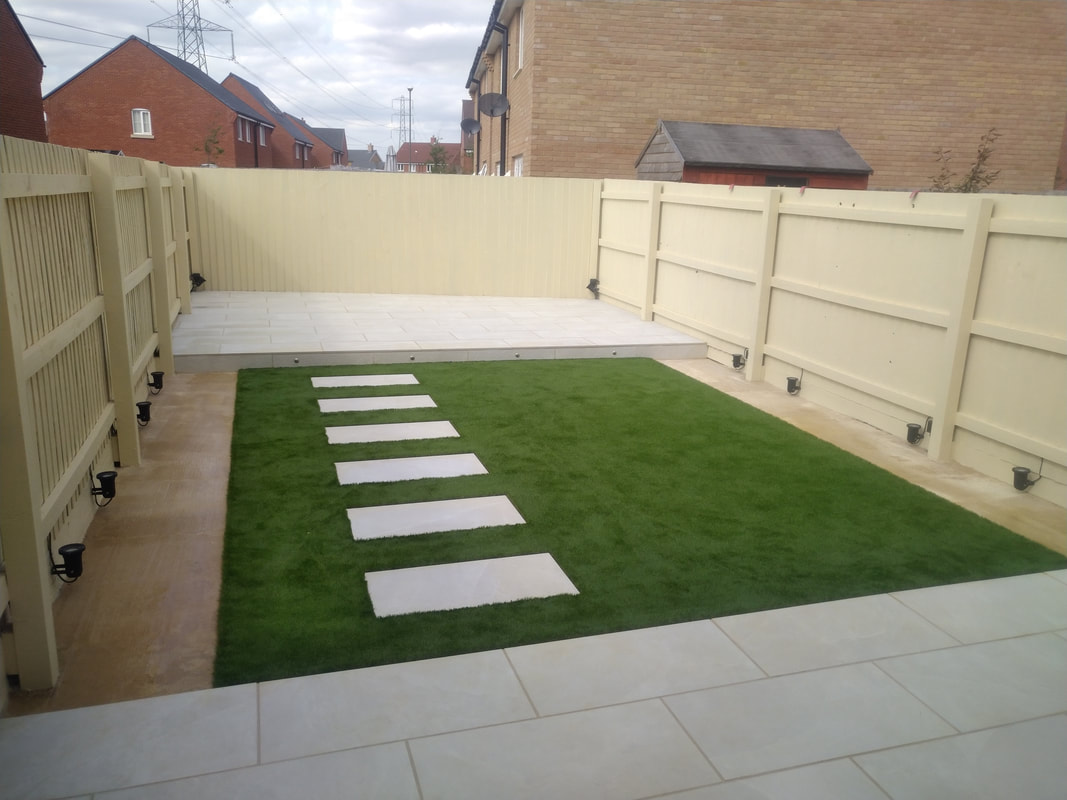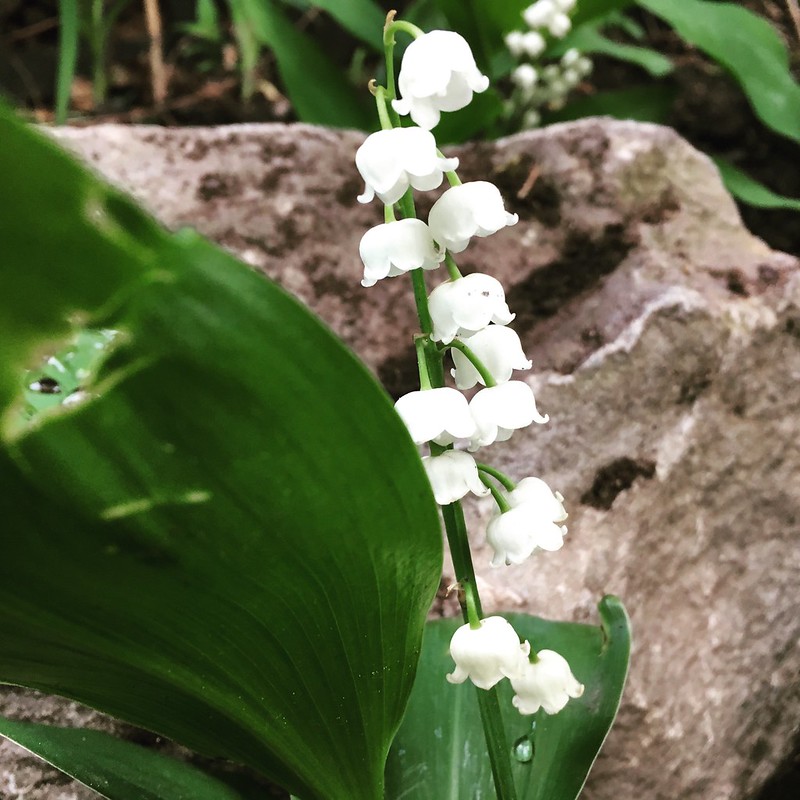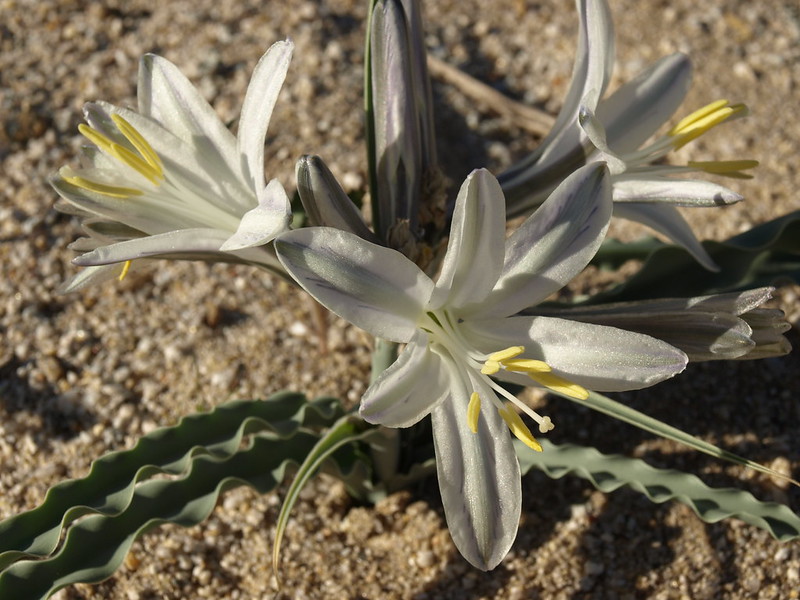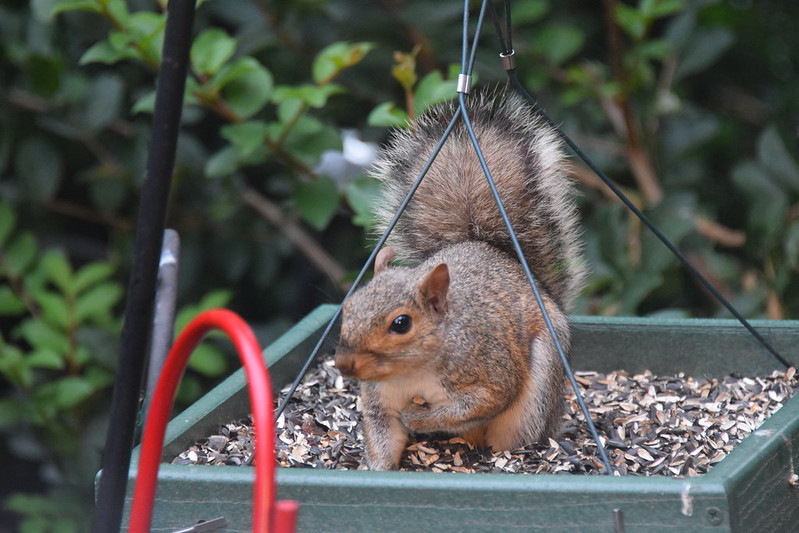|
This article contains affiliate links
Squirrels are small, climbing mammals which are members of the rodent family. Like other rodents they are extremely cunning and adaptable.
These tree dwelling creatures have exceptional acrobatic abilities in climbing and leaping. This makes them particularity difficult to catch for even the most skilled of hunters. Not only are they agile like their closely related cousins rats they are also intelligent. Millions of years of evolution have given them all the tools they need to take advantage of any environment. This is particularly so with the North American Grey Squirrel which is also fully naturalised in the UK and some parts of Italy.
Squirrels can grow accustomed to manmade environments as they have minimal predators, abundant shelter and food supplies.
This is particularly the case with suburban environments! Plots with sizable gardens have large trees, dense vegetation and are generally sheltered. Squirrels can easily take advantage of less well maintained gardens finding security in garden thickets. Squirrels also find it easy to nest in old trees, dilapidated sheds and outhouses. Their territory can range over multiple gardens making them difficult locate or control. Identifying squirrel damage
Identifying squirrel damage is an important part of resolving your particular pest problem. You may also have other garden visitors which are causing damage. Therefore it is good to be sure squirrels are the ones causing mischief so other critters can be ruled out.
Tree bark damage
Squirrels have sharp claws which enable them to climb and descend trees with remarkable agility. Their regular clambering can scratch up the surface of soft wooded trees and shrubs opening them up to disease. These abrasive routes can clearly be seen on the branches of trees squirrels typically utilise.
Damaged crops
Squirrels love fresh fruits and vegetables! So much so they will not think twice about raiding your vegetable plots and orchards. They also have a remarkable ability to know when a crop is at its very best. For instance sweet corn being left all season will be taken at its very ripest! This can lead you into a false sense of security which makes the damage even more frustrating!
Shrub & flower buds removed
Squirrels have a taste for fresh flowers and leaf buds. This can seriously damage garden plants and stunt their growth.
Damaged bird feeders
A very common antic of squirrels is to raid bird feeders and tables. Their high intelligence, agility and strong teeth can be a real challenge to overcome. Squirrels will chew through plastic, wood and even thin wire to break into bird feeders or feed, storage bins.
Small holes in lawn
A particular habit of squirrels is they store harvested seeds and nuts underground. This enables them to re-access them during the long, cold winter months. Lawns are the perfect, expansive surface to bury these making them susceptible to squirrel damage. If you have multiple holes in your lawn especially in late summer and winter you can be sure its squirrels.
Holes in trash bins
A Squirrels menu is not simply restricted to fruit, nuts and vegetables! Like rats Squirrels will also scavenge food waste and even meat products. One of their biggest weapons in this pursuit is their extraordinarily strong teeth. Squirrels have been known to chew through thick plastic to get at trash. If robust rubbish bins have been chewed open this is sure to be caused by squirrels.
Quick methods of deterring Squirrels
The reality is Squirrels, especially the ‘Eastern Grey’ is exceptionally efficient at exploiting human beings. Therefore to completely exterminate the species from your local area is a little over ambitious. However there are many fast, less intensive ways of deterring squirrels from your garden. These work on the concept of making your garden ‘less attractive’ therefore taking their attention elsewhere.
Commercial squirrel repellent
These come in a range of products from sprays to granules which typically smell awful to squirrels. These range from the smell of predators to citronella and can be effective but not in all instances.
There are applications of rodent poison that can kill squirrels but I would strongly stay away from this idea. These can also be fatal to pets and squirrel predators which can exacerbate the pest problem and cause unnecessary grief. I have linked to a popular brand here. Bone meal
Bone meal is a combination of dried, ground up, bone and animal waste materials sourced from slaughter houses. This is traditionally used as a fertiliser for plants containing high levels of protein & phosphorous.
Although I have had scepticism that this would deter squirrels I have had many recommendations it does work. It is most effective in stopping squirrels from digging specific areas where bulbs are planted for example. It can be applied generously to the top layer of the soil and preferably mulched over. This large tub of bone meal isavailable on Amazon here. Ultrasonic pest repeller
These small, electronic devices emit an extremely high frequency sound which humans cannot detect. It is said these high frequency sounds are extremely uncomfortable for pests such as squirrels.
However scientific studies found that their effectiveness decreased over time. This was probably due to specific pests becoming accustomed to these sounds. The mixed results experienced with these could probably stem from the pests desperation for food. If it is simply a matter of having your squirrel feed elsewhere then they are probably effective. However if your garden has become their primary food source then more action would be needed. I have linked to a popular ultrasonic pest repeller here. Motion activated pest repellers
These battery powered gadgets can be very effective in seeing off a number of garden pests including squirrels. Typically these are attached to a water hose and have a motion activated censor.
When a squirrel comes by it will automatically swivel in its direction spraying a fast jet of water. This will scare away squirrels however only within the devices range of fire. Squirrels can still utilise high up travel routes such as trees or the top of fences. I have linked to the popular Orbit Yard enforcer on Amazon here. Encourage natural predation
One reason squirrels are numerous in our gardens is the lack of natural predators. This is because larger predatory raptors and mammals are persecuted by humans. Furthermore our gardens and urban areas have fewer opportunities for predators to nest and shelter.
Specific landscape installations such as raptor nest boxes can help encourage squirrel enemies. Birds such as owls, kestrels, hawks and Harriers are specialised at hunting squirrels. Get a dog or cat
Generally speaking, squirrels will feel more secure in gardens which have neither dogs nor cats. Cats in particular are quite capable of hunting down and ambushing squirrels.
With that considered from my own experience squirrels will get to know a pet’s daily movements and work around them. When my cats are fast asleep during the day the squirrel in my garden can be seen foraging at its complete leisure. My advice would be don’t get a pet to get rid of squirrels but if you are getting one anyway it could help. Live trapping
Trapping animals sometimes has a mixed reaction from people but sometimes physical removal can be a last resort. In reality simply relocating squirrels is a futile exercise as other animals will simply take their place.
This is especially the case if your garden is a particularly prosperous territory for them. Live cage trapping however can be especially effective catching multiple targets at once. A good example of such a trap is the Squirrelinator. Smells that repel squirrels
If you are against trapping or extermination and would rather natural repellents there are some spices and smells which squirrels don’t like. These can be planted, applied in powder form or with essential oils, we have listed these below:
Black pepper Chilli pepper Cinnamon Lemongrass Cloves Garlic Peppermint Cider vinegar Citronella Intensive ways to get rid of squirrels from your garden
Most of the time simply making your garden less attractive to squirrels will simply not be enough to keep them away. If you have regular visits from them there are probably multiple factors which make it beneficial to them.
Most often these are beyond light measures and will require a more intensive approach. These can include altering the immediate landscape or removing beneficial habitat or food sources. Remove food sourcesAnnual food sources
One of the biggest attractants for squirrels is food, in nature the survival of their species is dependent of the seasonal gathering and storing of food. Hence if there is a food source available all year round squirrels will make full use of it. This is commonly the case with bird feeders, chicken enclosures, trash cans and agricultural food stores.
The first step is to investigate if squirrels are tapping into these without you knowing. Make sure all stored grain, feed or waste food is stored securely, preferably in metal containers. If it is a known source like an open bird feeder you will need to address this directly. Scroll down to the section in this article which tells you how to stop squirrels eating bird food. Seasonal food sources
Even if you don’t have feed or waste food being stolen there is probably enough seasonal food available. Apple trees which litter your lawn until late winter, that large walnut tree or chestnut hedge.
Squirrels will have a local map of all the local food sources and the more you have the more chance they will stick around. It is important to point out that seasonal fruits and berries also benefit other beneficial wildlife. The key is not having too many trees and shrubs producing a glut of fruit all at once. Remove trees and dense vegetation
Squirrels like most wildlife need suitable nesting sites to shelter and raise young. The tidier and less clutter your garden has the less chance you have of encouraging squirrels. It must be noted that squirrels do not recognise garden boundaries.
This can particularly be a disadvantage if you have lazy neighbours which let their garden go feral. All you can do in this situation is to persuade them to clear up their plot. Eliminate local nest sites
Squirrels are very good at finding secluded nest sites to hide away from predators and people. The fewer opportunities squirrels have to nest the better. Unlike rats these tree dwelling rodents cannot burrow.
Therefore their nesting sites are usually high up. Hollow trees, old sheds, garages and roofs are all suspects when it comes to potential squirrel nests. It is important therefore to fortify any entry points to buildings and remove old trees. Grow under cover
The main problem caused by squirrels for fruit and vegetable growers is obvious. Squirrels can strip a harvest before you have even had a chance to have a look in.
This frustrating problem is difficult to get to grips with unless you physically separate your crops from the pest. One advantageous way of doing this is to start growing under cover. A secure polytunnel or greenhouse will provide a protective area to grow crops in compete safety. These can also protect crops from other pests such as birds and egg laying butterflies. Greenhouses can also allow the vegetable gardeners to grow more exotic produce and extend the growing season. Build aviaries
If perhaps a slightly extreme method building aviaries can be a sure way to keep squirrels off of plants. These structures are a good way to protect specimen plants and fruits from all large pests.
Aviaries however are quite expensive and laborious to install. If considering installing an aviary considers more multifunctional ways they can benefit your garden. For example these structures can be used to safely raise chickens as well as producing fruit and nut crops. Plant plants squirrels don’t like
Although generally to avoid squirrels gardens with fewer plants are more favourable, there are some plants squirrels do not like.
Squirrels like shrubs and vegetation that is woody enough to hold their weight and provide cover. This means plants with thin, brittle branches with an open habit are far less desirable. Also plants with a vertical growing nature such as bamboos, grasses and palms are not favourable. Their lack of horizontal canopies gives them less manoeuvrability and an ability to move quickly. Squirrels also do not like plants with a pungent aroma, some well known examples include:
Penny Royal
Peppermint Alliums Bay Geraniums Eucalyptus Choisia Ternata Rosemary Tarragon Lavender Lemon balm Lemon grass Install fence spike strips
A favourite travel route for squirrels is along the tops of garden walls and fences. Hence it makes sense to make these routes as non negotiable as possible! The best way to do this is to install fence and wall spikes. These come in a variety of thicknesses and spike densities and can be fixed into position with fixings or external adhesive.
How to landscape your garden against squirrels
The intensive methods and garden installations above are usually enough to repel squirrels from a garden. However occasionally a garden and its surroundings may be so favourable to them, more drastic action is needed.
Re-landscaping a whole garden just to get rid of squirrels may seem a little drastic. However gardens which are less attractive to squirrels generally look more aesthetic, are easier to maintain and can host more recreational activities. Therefore landscaping your garden to deter squirrels can in turn make it better for you and your family. We have listed some of the fundamentals of good squirrel repelling landscaping here. Open up your site
As discussed early on in this article, the more clutter, dense vegetation and large trees your garden has the better for squirrels. Clear out your garden of unwanted vegetation and unnecessary items. Make your new garden open and easy to maintain.
A great way to achieve this is to also re-level your site to a consistent, flush surface. This provides you with manageable areas with easy access for tasks such as mowing and weeding. An open, level garden free of clutter reduces security and feeding opportunities for squirrels. Use bright colours
Like other small mammals squirrels rely on camouflage to remain hidden from predators. Typically blending in against the browns and greys of tree bark they freeze if a predator is nearby.
However the more your landscaping colours vary from nature the more squirrels will stand out. This makes them more at threat from especially areal predators and less likely to hang around. Install hard surfacing
Hard landscape surfaces such as paving provide some of the most robust and maintenance free surfaces there are. It is probably no surprise they are also no advantage to squirrels. Unable to dig the ground and being abrasive to their feet, paving is not squirrel friendly at all.
Gravels
Gravels especially non calcareous ones graded at 10mm or less are very uninviting for squirrels. The loose aggregates are sharp for their feet and they make a rustling sound underfoot.
This takes away their ability to be stealthy making them more vulnerable to areal and land based predators. Loose gravels are also difficult for them to dig especially if based with thick landscape fabric underneath. Artificial lawn
Artificial lawn although soft is not much good for squirrels either. Firstly the thick underlying fabric and base is imposable to penetrate to bury nuts. The synthetic blades of the grass rustle when crossed attracting the attention of predators like cats.
How to stop squirrels digging up bulbs
One of the most common complaints about squirrels is they love to dig up bulbs. This is generally believed because they enjoy eating some types of bulbs.
However with bulbs routinely dug up and left on the surface some believe it is more ground disturbance that attracts squirrels. Thinking bulbs are nuts buried by another squirrels they attempt to uncover them. Nonetheless there are a few things you can do to stop squirrels digging up your bulbs. Steel netting
This can be placed over your bulb plantings and backfilled with soil. This enables fresh growth to grow through without squirrels being able to reach the bulbs.
Plant bulbs squirrels don’t like
Squirrels particularly dislike the smell of certain bulbs. These include Daffodils, Snow drops, Lilly of the Valley, Hyacinth, Alliums, and Crocus.
Plant bulbs in amongst aromatic plants
There is some pungent smelling plants squirrels hate these include Penny royal, Spearmint, Alliums, Garlic, Lavender and Geraniums. These can all be planted around bulb growing areas.
Plant bulbs with deep mulch
Planting your bulbs deeply under a thick layer of mulch can put off squirrels digging them up. Furthermore using a strongly scented bark like cedar can restrict the squirrel’s sense of smell. This prevents them from locating the newly planted bulbs under the soil.
Plant bulbs in gravels
Squirrels do not like bounding across gravels especially if they are course and deeper than 20mm. Gravels being angular are uncomfortable for squirrels feet and even more so for digging.
Furthermore loose gravels are noisy to move upon and this can attract the attention of predators. Planting bulbs under loose gravel, through slits in membrane is an effective way to prevent squirrels digging them up. How to stop squirrels digging up your lawn
Squirrels dig holes in lawns because they provide an expansive, insulated and relatively undisturbed place to bury food.
The tufts of grass provide the perfect place to bury multiple nuts to collect later. Grass lawn rarely freezes as solid as damp soil does. This makes it more favourable for underground winter storage. Squirrels have an excellent sense of smell locating food buried months ago. There are only three main ways to guarantee preventing squirrels digging your lawn; Eradicating all squirrels in the area - highly unlikely Relaying a new lawn on top of a ground stabilisation grid or steel netting – expensive Relaying the whole lawn area with artificial lawn – even more expensive How to stop squirrels eating bird food
Feeding the birds is a pass time exercised by many. Not only is it enjoyable and relaxing to watch local birds, feeders have become an important source of food especially in winter. It is therefore rather annoying when the local squirrel turns up and helps himself to the feed.
Squirrels are notoriously persistent, acrobatic and even genius in their attempts to counter our defences. Stopping squirrels from eating your bird food is no easy task but there are some methods that can work. Try a bird feeder pole
Bird feeder poles support feeders up off the ground and typically placed in the centre of a lawn. This prevents squirrels from jumping onto the feeder from a high up place of safety such as a fence or tree.
The pole has little or no grip for squirrels to climb plus it has a downward facing collar or baffle to prevent them getting to the feed. The feeder pole forces the squirrel onto the ground where it is more uncomfortable and vulnerable to predators. These come in a wide range of styles are quite attractive garden features. The Urban Deco wild bird feeding pole belowis available on Amazon here. Attach bird feeders closer to the home
Squirrels generally do not like to come close to people. Therefore the closer you position your feeders to the building the more uncomfortable squirrels will feel. This is particularly true if you have pets such as cats and dogs.
It is important to remember squirrels are also cunning and daring so a good idea is to install a window bird feeder. These are best attached high up on an upstairs window allowing you watch birds while having breakfast in bed! It will usually take around 4 weeks for birds to become brave enough to start feeding. This beautiful Roamwild window bird feeder is available on Amazon here. Install squirrel Baffles
These simple collars can be attached to vertical feeders and structures to prevent squirrels climbing up. The universal squirrel baffle below is available on Amazon here.
Buy squirrel proof bird feeders
There are a number of squirrel proof bird feeders on the market that use varying designs to keep squirrels away from bird feed. These are usually too robust for squirrels to break inside.
Weight sensitive bird feeders
These feeders have perches which either swivel or click downwards when anything heavier than a bird lands. The result being the squirrel fails to position itself to feed and continually falls off the feeder. Thisweight sensitive bird feeder is specifically designed to keep squirrels off bird food.
Bird feeder cages
The bird cage feeder is simply a bird feeder within a cage. The cage allows smaller birds in but prevents larger birds or squirrels from accessing the feed. This Repeak cage feeder is extremely robust and is extremely popular.
Spinning bird feeders
These are suspended on a clip which spins furiously when a heavy mass puts its weight upon it. This disorientates the squirrel and makes it impossible for it to balance or feed. This squirrel proof bird feeder will also deter other pests from stealing the feed and is available on Amazon here.
Buy bird seed that squirrels do not like
There are some bird seeds which squirrels don’t like to eat but birds love. These include Millet, Canola, Nyjer seed, Canary seed and Safflower. You can also mix some chilli pepper with conventional bird seed. This will not affect the birds in anyway but will repel squirrels from the feeding.
Conclusion
To get rid of squirrels from your garden you will firstly need to identify why they are visiting. Assessing these factors and implementing a combination of quick repelling products, intensive methods and garden landscaping will reduce squirrels in your area. There is not one single garden installation that will make squirrels disappear. However a combination of installations set out in this article will eventually solve your squirrel problem.
Why not visit our resource page for more helpful landscaping products. If you are landscaping your garden yourself you may want to read our best landscaping tools article here.
If you need assistance in designing, building or planting a squirrel proof garden please do not hesitate to contact us. We traditionally serve the Chiltern Hills area as well as Oxfordshire, Hertfordshire and West London.
Some of our typical, local project locations include; Amersham, Aylesbury, Beaconsfield, Berkhamsted, Chalfont, Chesham, Gerard's Cross, Great Missenden, High Wycombe, Princes Risborough and Wendover.
0 Comments
Leave a Reply. |
The Author
|
Landscaping services across Buckinghamshire, Amersham, Aylesbury & High Wycombe
Hyde Heath, Amersham, Buckinghamshire |
|

